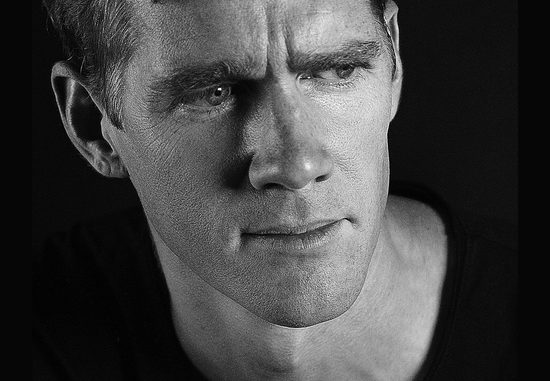

Review Fix chats with playwright Joshua Crone, who discusses his new production, “Washed in the Blood.â€
About the Production:
A school shooter who singles out believers enters the lives of a teenage evangelist, a juvenile delinquent, and a youth pastor with a shady past in Joshua Crone’s dark parable. Presented after the Easter holiday, WASHED IN THE BLOOD explores a perpetrator of one of the 21st century’s most shocking and now-prevalent crimes. Based on fact and eye-witness accounts, Crone’s play offers audiences a tour through the mind of a victim-turned-shooter.
Review Fix: What was the inspiration for this project?
Joshua Crone: Inspiration probably isn’t the right word for a play based on the 2015 shooting at Umpqua Community College. But there was something deeply moving in the reports of students answering yes when asked at gunpoint if they believed in God. I’ve always admired those who are willing to suffer, even die, for their beliefs, religious or otherwise. As I read the reports I asked myself: What would I have done as a younger man with fewer doubts? And if, in the moment of truth, I had denied my beliefs like Peter or Galileo, what then? That was the point of departure for Washed in the Blood.
Review Fix: What’s your creative process like?
Crone: Writing is an exponential process. I spend a long time getting nowhere, researching tangential topics (alchemy, in this case), filling marble notebooks with character notes and storylines. Then come the false starts, usually brought on by haste, by trying to write while the voices are thin, the plot underdeveloped. Finally, if I’m lucky, the threads come together, the characters come to life, and I write very quickly, basically taking dictation. The challenge then is to slow down.
Directing is more of a linear process. I step back from the text and break it into manageable blocks. What doesn’t work or isn’t worth carrying gets fixed or discarded on the march towards opening night. Meanwhile the actors are going through what I went through writing, the same growing pains and false starts, until everything comes together. I make sure we get there, but the route we take is largely up to them.
Review Fix: What makes this different or special from the original?
Crone: As in the LA production, there is a lot of interaction between live and recorded performers. The recordings here are the same, but the live actors are different. The result is a unique situation in which actors come together across space and time to create something that lives—and dies—in the moment. Someone who saw both productions would probably appreciate this, especially if they knew that two of the recorded performers, Varda Appleton and Billy Malone, are originally from New York.
Review Fix: What did you learn/are learning about yourself through this process?
Crone: This is my second production since moving to New York eight months ago, and I’m still learning to navigate the waters. Doing theater here is more complicated and certainly more expensive, but also more rewarding. For one thing, the critical response is more nuanced and thoughtful. And for someone whose life is devoted to experimental theater, that alone is worth the price of rent.
Review Fix: What are your ultimate goals for this production or your company for the future?
Crone: The goal for this production is a double bill with my New York debut Squatters, ideally a full run at a larger venue like The Tank.
Review Fix: What’s next?
Crone: I have a short play premiering May 1 at The Tank as part of You Are Not Alone, a festival of short plays directed by Squatters costar Dori Levit and centered around the anguish, stigma and difficulty of coping with mental illness. My contribution, The Jail at Philippi, was inspired by the true story of a therapist arrested for treating depression with magic mushrooms. In a similar vein, I recently wrote The Journey, a psychedelic comedy about a conservative young man who decides to take ayahuasca with his fiancée’s family to earn her father’s blessing. It’s very much an LA story, but I’d love to premiere it at the New York Fringe Festival. Then there’s Ashes, Ashes, my new play about the bombing of Hiroshima. A reading of it recently took place in LA with Japanese-American actress Kazumi Aihara and acclaimed theater and film director Robert Allan Ackerman. The goal is to premiere it in 2020, the 75th anniversary of the bombing. And finally, I’m still looking for financing for my second feature, A Farewell Tour. It’s a film about the death of a Japanese-American tour guide, an estranged member of an ancient family of Noh actors.
The NuBox Theater at John DeSotelle Studio
754 9th Ave, New York City
ONE WEEK ONLY:
Friday, April 26 @ 8 pm, Saturday, April 27 @ 3 & 8 pm, and Sunday, April 28 @ 3 & 8 pm – Tickets: $25/$15 ([email protected])


Leave a Reply